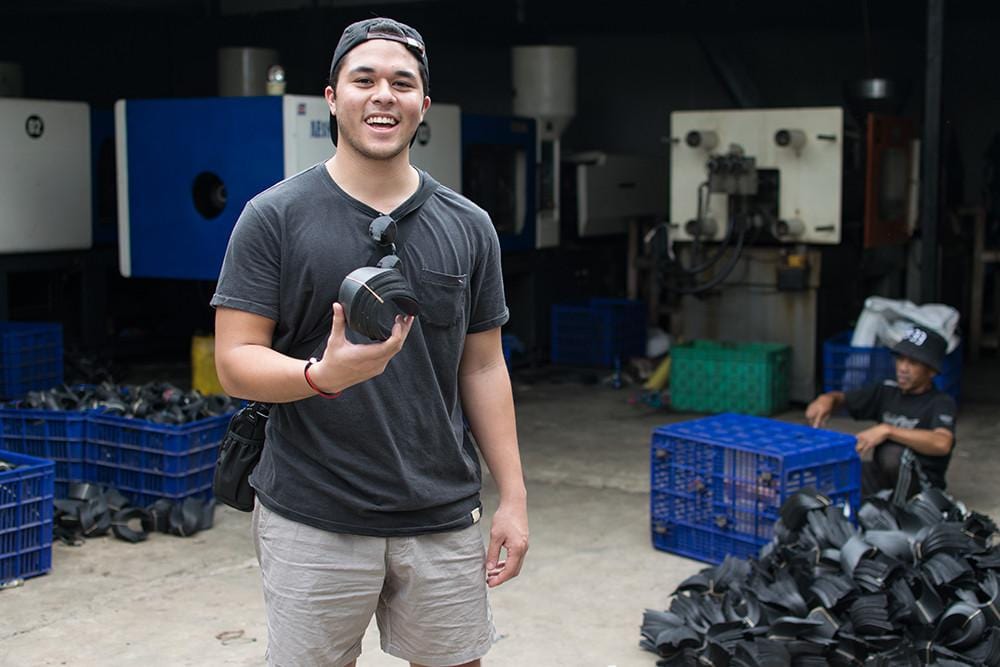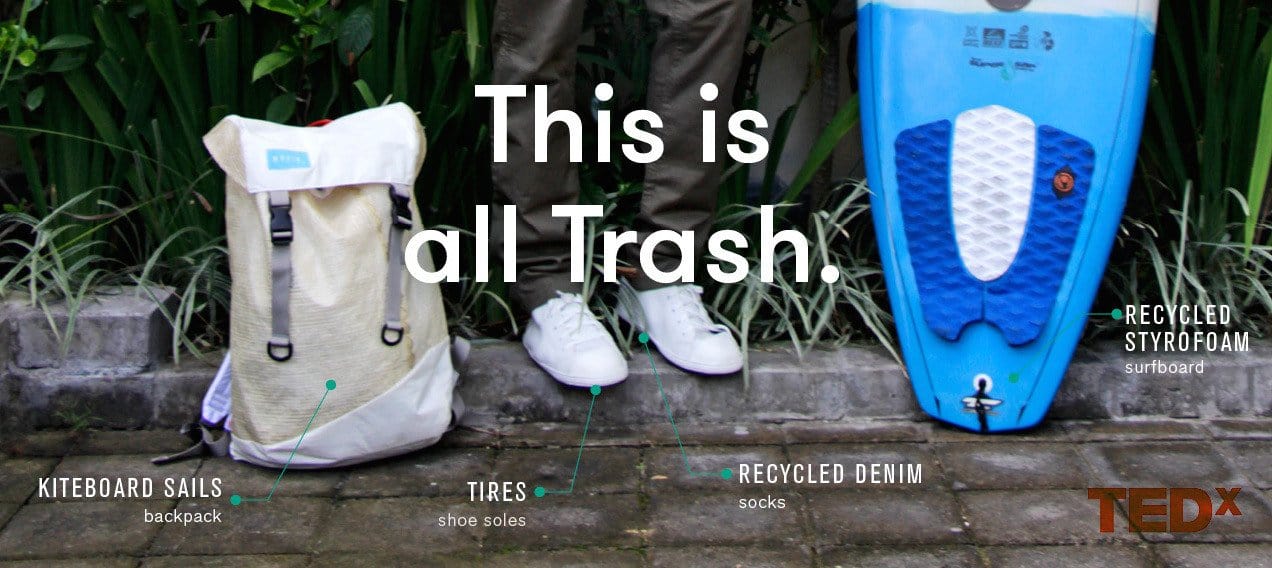Indosole Blog & News

activism
Topiku "The Accidental Entrepreneur"
As a brand that started as a hobby and with suitcases full of sandals wheeling through airports, we at Indosole enjoy hearing about other brand's journey and their respective labor of love. We are all underdogs!
We met the Topiku brothers Max and Monty last year at an event in San Francisco. Turned out they have a similar mission for the country of Indonesia and a cool conscious product. We asked them to tell their story and equally important to touch on the challenges they have faced along the way.
Here it is and we hope you enjoy Topiku's story!
"The Accidental Entrepreneur"
Building a business is tough. Building a socially-minded one is even tougher. Add 9,000 miles of separation and being a full-time college student into the mix, and you have Topiku’s current situation.
Hi, I’m Monty, a 22 year old senior at the University of Southern California, founder and CEO of Topiku: a social enterprise based in California and Indonesia. We’re on a mission to become the world’s most sustainable hat manufacturer, with products handcrafted from upcycled + recycled waste by Indonesian artisans.
We’re still young (we’ve been building our brand for the lesser part of two years), but it’s been incredible watching our mission and network organically grow. However, it’s been a constant struggle learning how to balance and schedule my time between school and personal endeavors.
Back in the summer of 2014, I was an aimless freshman in college who had just given up his dream of becoming an architect. I hated having to fly back to Jakarta to visit my family with all its traffic, craziness, and dirtiness—a stark difference from the comfortable southern Californian atmosphere that I had grown accustomed to. Driven by an overarching desire to create a positive social and environmental impact, I took an internship at a NGO called XS Project. They worked with a community of trash-pickers who lived in a slum of Jakarta, creating value-added products out of the waste that they collected as well as providing front-end jobs. Whilst working for them, I proposed a new product for them: a hat made from upcycled car seat vinyl. Long story short, they rejected my idea; disheartened, I tossed the idea on the backburner.
It wasn’t until I returned to campus—when I showed my friend (who eventually became my business partner) my prototype hats (see below) and told him my story—when the notion of Topiku as a business was born.
Reflecting back on Topiku’s formative days on the heels of a quick Topiku Indonesia trip reminds me of just how far I’ve come on this journey of accidental social entrepreneurship.
Back then, I definitely did not fully understand the multifaceted and complex concept of sustainability—I simply had an idea for repurposing discarded materials. Was using salvaged material enough to justify sustainability? I wasn’t thinking about who or how they would be made...
Today, Topiku has grown to encompass more than just a mish-mash of up-cycled materials; it’s really come to represent an entire ecosystem of not just professional meaning, but a deeply personal one as well. Over the past few years, I’ve had the honor of working closely alongside inspiring artisans, whom I count amongst the most dedicated and passionate individuals that I’ve ever met.
Some highlights:
Watching Ninda, who hand-sews all of our bamboo tees, grow from a sole-proprietorship to managing a team of five
Visiting Anton’s innovative factory in Gresik, Surabaya, which has engineered a process for recycling cotton and polyester sourced from old clothes and plastic bottles
Collaborating with Bang Sano, who leads the environmental movement in Indonesia through his organization, Waste4Change, on various initiatives, from mentorship, to advocacy, to sponsorship of 12 of his trash-pickers’ health insurances
And finally, last but certainly not least, observing our community of hat artisans in Cigondewah, Indonesia—led by Kang Asep—develop into a thriving village, where incomes are re-invested into things such as education and health, and corollary industries have emerged as a direct result of exposure to sustainable products and international markets.
“I want to dispel the notion that sustainable, socially-impactful products come at the cost of good design and affordability.”
As our brand has grown, the bottlenecks and challenges of working with trash as an input have become more apparent. At times, there can be a tension between the trade-offs of good design and good recycling; it really is a balancing act. Many companies with an emphasis on recycling can have some very—for lack of a better term—obvious-looking recycled products (read: ugly and badly designed), take for instance the blatantly upcycled/recycled tote bags that you might find in Ubud or Costa Rica (or even Whole Foods now!).
Do a Google search for “recycled hat” right now—you’ll find some creative ideas, but nothing you’d wear casually. The designs really don’t leave much to the imagination. I want to dispel the notion that sustainable, socially-impactful products come at the cost of good design and affordability.
Thankfully, this past trip has addressed many of the issues that we’ve been facing—particularly scalability. For the past year and a half, the main base of our hats has been made out of upcycled cotton jacket cuts. Upcycling is awesome because it diverts materials from ending up in landfills as well as incentivizes upstream, sustainable employment (read: trashpickers) and even has additional positive externalities, such as waste management and ecological responsibility advocacy. However, small-batch upcycling is not inherently sustainable and is a true bottleneck to spreading our message. This is where Anton, who I mentioned earlier, comes into play; unlocking an efficient production system that can enable sustainable production—in both the environmental and economic sense—is truly pivotal. His source of raw recycled cotton and rPET yarn will allow us to expand our capacity and catalogue in the long run.
I couldn’t be more stoked to be where I’m at today; passionately putting hours on a project that has quickly become my top priority. As the company has grown, so have I. It’s funny to be able to participate in events that would have made me uncomfortable in the past, namely, public speaking. Last week I had my first ever business pitch competition, and I just got word I’m moving on to the final round. On Tuesday I was invited to speak at UC San Diego for their Green Talks event to speak about my understanding of sustainability. Totally had to miss class for all these events ;)
In this age of mass information and demagoguery, it’s easy to feel pessimistic about the world; but looking ahead, I am optimistic that folks like you and I are beginning to appreciate values such as fair trade, women’s empowerment, environmental sustainability, responsible waste management, and cultural preservation through conscious capitalism. I truly believe that social enterprises such as ourselves and Indosole can empower these values to flourish—but we can’t do it alone. It will literally take a village.
Monty | monty@topiku.co
You can find Topiku at topiku.co or:
Instagram
Facebook
Store

conscious consumerism
These Brands Make Cool Stuff Out Of Trash
At TEDxUbud 2016 Indosole founder Kyle Parsons got up on stage wearing an outfit made from trash, and the audience had no idea. To the naked eye his clothes looked no different from what the other speakers and audience members were wearing, but in reality most of it was made of recycled and upcycled...


